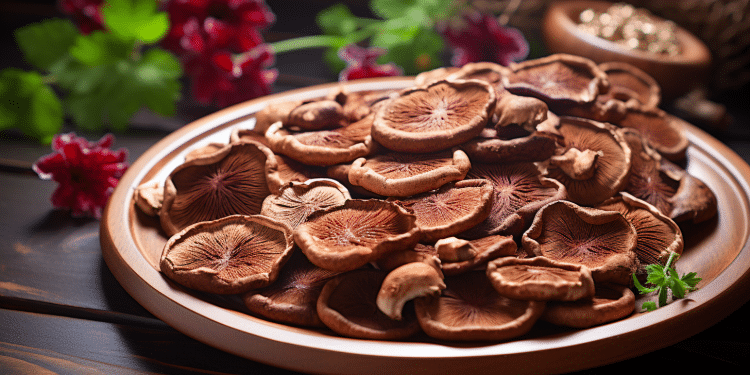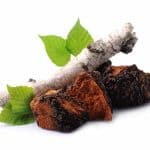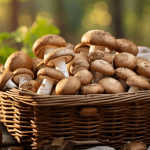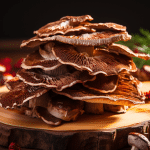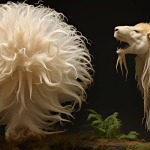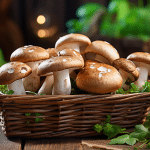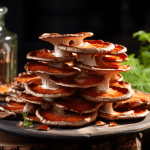If you find yourself accumulating excessive amounts of tissues and antihistamines at specific times of year, it is possible that you are suffering from seasonal allergies. We wanted to discuss how you can use reishi mushroom for allergies along with other natural remedies.
Seasonal allergy triggers differ, but common symptoms can include sneezes, coughs, runny noses, and itchiness. There are many ways you can alleviate symptoms using natural remedies and supplements, from rinsing your nose with saline solution to adding mushroom powders to your diet. Learn how to relieve allergies naturally, and return to feeling like your best self, regardless of the season.
Reishi Mushroom for Allergies
Another natural way to suppress allergy symptoms is with functional mushroom supplements, particularly ones containing organic, whole-food reishi and maitake mushrooms. Reishi mushrooms have alleged anti-allergy properties, and can support reducing inflammation, while also supporting a healthy immune system.
Can You Use Reishi Mushroom for Allergies?
Yes, reishi mushroom is great for allergies. Studies and reviews have shown that reishi provides suppression of inflammatory and allergic responses for a variety of ailments. So adding reishi to your diet could be a great way to alleviate your allergies. As always, talk to your doctor about adding reishi to your supplement regimen if you’re taking other medications or concerned about an allergic reaction. But for the most part, reishi is one of the safest supplements you can take.
Reishi mushrooms (Ganoderma lucidum), known in Chinese as “lingzhi,” have been used for centuries as a treatment for increasing energy and stress resistance. A known adaptogen, but unsuitable in cooking applications because of its bitter flavor, it is thought to boost vitality, immune function, and lifespan. In addition, we find it to be increasingly useful for supporting seasonal allergy symptoms, asthma, and even chronic allergic bronchitis and eczema!.
Reishi mushrooms are powerful stimulants and can help to regulate Th1 aspects. Furthermore, it also works to inhibit the different inflammatory compounds (such as prostaglandins) in the body, as well as working to suppress the histamine release.
Mushrooms, such as reishi, contain both soluble and insoluble fiber; soluble fiber is mostly the polysaccharide beta-D-glucan, which is part of the mushroom cell walls. Polysaccharides are an active component of mushrooms, exhibiting immunomodulating and anti-inflammatory effects in mushrooms, thus making them useful in medicinal purposes. To gain access to these polysaccharides, one must extract them from the cell walls of the reishi, usually using hot water, since that allows the bioactive forms of polysaccharides to remain structurally intact. These polysaccharide components are then used therapeutically in various forms: powder, capsules and pills, as well as in liquid form.
Maitake mushrooms, which have a nice birds-eye look, are similar to reishi in their ability to support the immune system and may help to decrease allergy-related sensitivities. Maitake mushrooms help to promote a natural equilibrium in the body and healthy stress responses, qualities that are very needed by someone suffering from seasonal allergies.
Other Allergy Solutions: Saline Nasal Irrigation
If allergy season is leading to a stuffy nose, unending sneezes, and a runny nose, it may be helpful to irrigate the nasal passages. Nasal irrigation with saline solution (a mixture of salt and water) is the process of washing your nasal passages using a spray bottle, pump, or a neti pot. You spray saline in one nostril and let it flow out the other. Studies suggest saline irrigation can lessen the severity of allergic rhinitis (inflammation and swelling of mucous membranes of the nose) in adults and children, and there are no reported negative effects.
Acupuncture
Acupuncture is a traditional Chinese medical practice that involves the placement of thin needles in certain points on your body known as “acupuncture points”, to relieve pain and alleviate other discomforts, including allergies. In a 2015 review of 13 studies of 2,365 patients, researchers found that, since acupuncture can modulate the immune system, it has led to an improvement in quality of life in patients suffering from seasonal as well as permanent allergic rhinitis.
Air Purifiers
High-efficiency particulate air filters are designed to sift out dust, mold, chemicals, and other allergens. HEPA air cleaners may help alleviate allergies symptoms as long as you replace your filters as frequently as recommended by your manufacturer, typically once every six months to two years. A 2018 study found that when a HEPA purifier was placed in the bedroom, symptoms of allergic rhinitis improved because the concentrations of particulate matter and household dust mites decreased in the air.
Apple Cider Vinegar
Apple cider vinegar, which is prized for its ability to boost your immune system, thin out mucus, and lower inflammation, can ease allergies symptoms. A 2017 study found that when apple cider vinegar and probiotics were added to test subjects diets, their mucus showed an increase in protective enzymes and antibodies. This could be contributing to the effectiveness of allergy treatments.
Probiotics
Probiotics do not always need to be taken along with Apple Cider vinegar in order to alleviate allergies symptoms. In one study of 173 healthy adults who said they had seasonal allergies, researchers found those taking probiotics, rather than placebo, reported improvements in their quality of life, including fewer nose symptoms related to allergies.
Additional Resources:
Can You Use Reishi Mushroom for Acne?
Is Reishi Mushroom a Cancer Treatment?
Updated 10/21/2022
